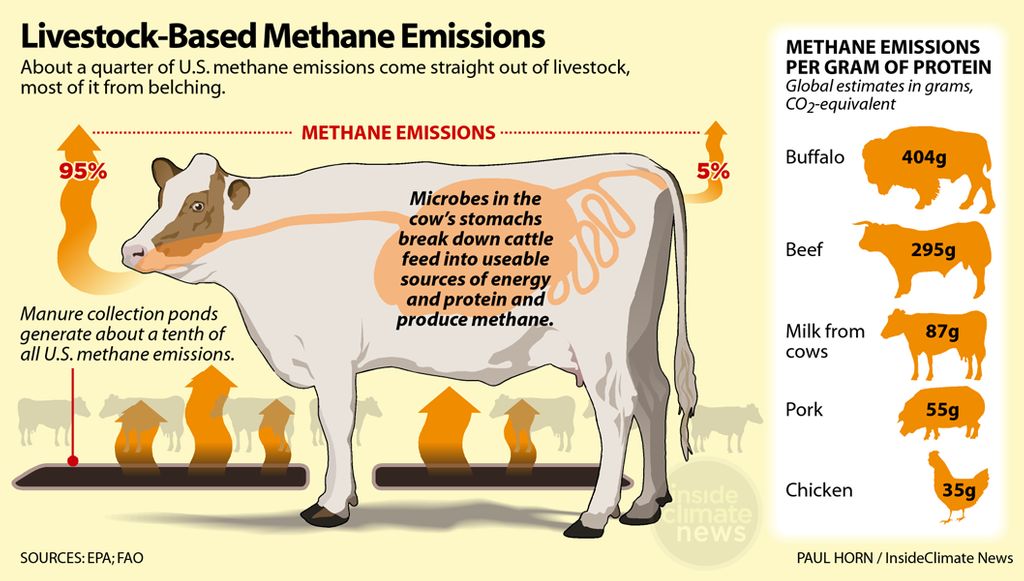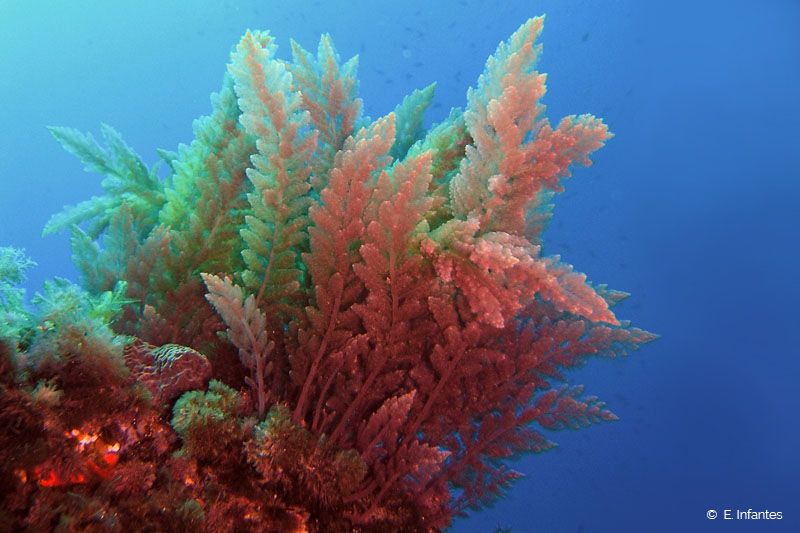Seaweed - Our Weapon Against Climate Change
Apr 18, 2019 • 29 views
When we think about greenhouse gas culprits, cars, trucks, and factories come into our mind. But there is one we always leave out and is responsible for 14% of the greenhouse gas emissions every year; livestock. Yes, the 3 billion cows, goats, and sheep on the planet are responsible for releasing vast amounts of methane into the atmosphere which has a notorious warming effect in our atmosphere.
Our growing appetite for meat and dairy products has turned livestock production into the largest source of man-made methane emission. Livestock release methane in the form of burps and farts and considering there are approximately 3 billion of them, that’s a lot of methane. So is there a way to feed everyone and help the planet at the same time? Scientists think they might have found solution deep under our oceans; seaweed.

Scientists are mixing molasses and a special kind of seaweed and sprinkle it over the cow’s meal. It was observed that methane released from cows were reduced up to 99%. Even though methane breaks down in the atmosphere in about 10 to 12 years, it has the ability to trap heat within our atmosphere at about 28 times greater than carbon dioxide.
Scientists at James Cook University recently discovered a type of red seaweed known as asparagopsis has unique natural properties that stop methane production in the guts of livestock. Swapping 2% of a cow or sheep’s diet with asparagopsis seaweed can eliminate their methane production. Also research shows its safe for the animal and may even improve their health.

Seaweed has an active ingredient called bromoform. It basically acts as an inhibitor to an enzyme that’s required by the microbes to convert hydrogen into methane. It disrupts that process so that methane is not formed. A machine called green feed is used to measure the amount of methane released by the cows. Scientists noticed that the amount of methane than can be reduced is proportional to the amount of bromoform that the seaweed contains.
Livestock requires an enormous amount of food so a lot of seaweed is required for those 3 billion livestock. So far, asparagopsis is yet to be reproduced or farmed. Scientists are trying to develop reliable and sustainable methods to cultivate asparagopsis. However it’s still in its early stages. Our ultimate aim is to make it viable as a supplement on a global scale. So feeding seaweed at a cost effective way that doesn’t negatively affect the livestock might actually be our first major step to
battle climate change.
